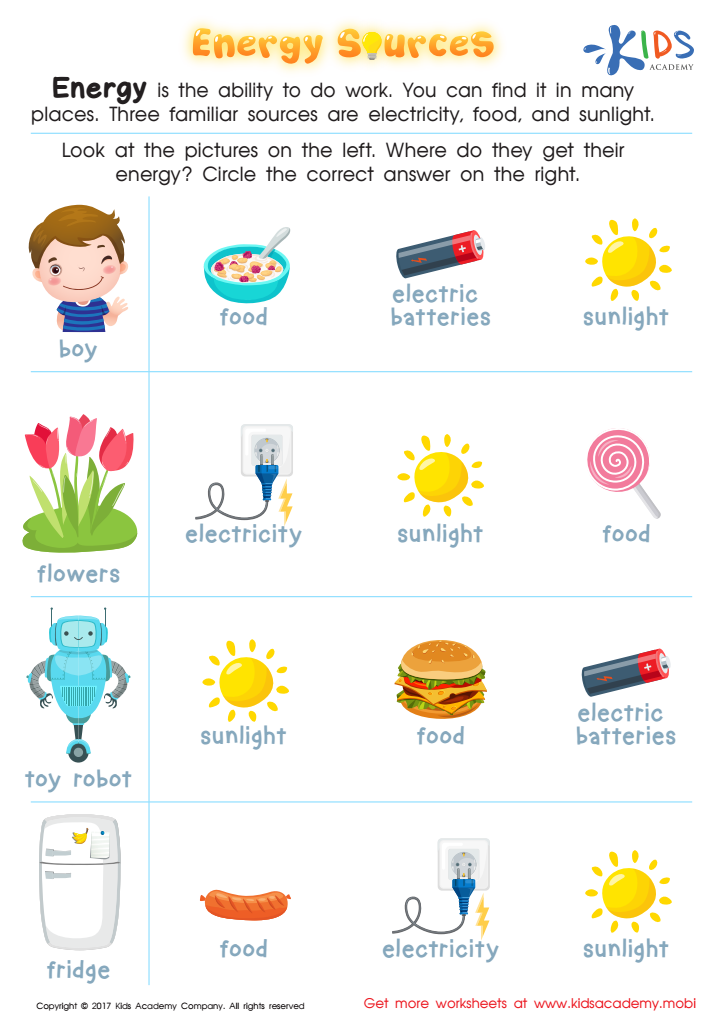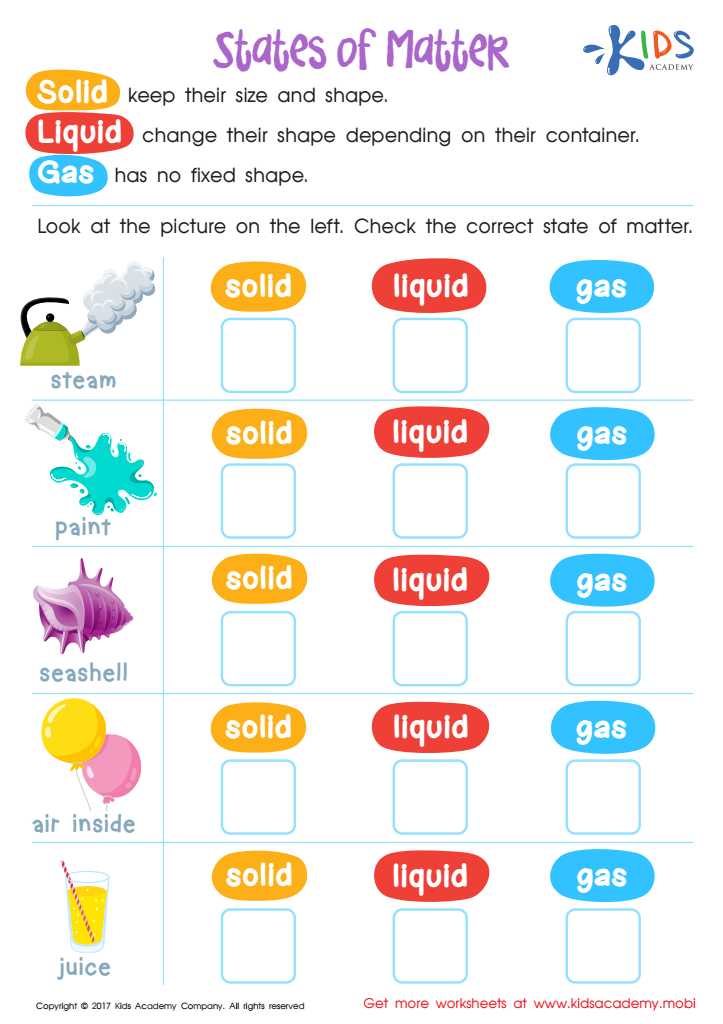Normal Physical Science Worksheets for Ages 3-8
3 filtered results
-
From - To
Explore our engaging "Normal Physical Science Worksheets for Ages 3-8," designed to spark curiosity and nurture a love for science in young learners. These thoughtfully crafted worksheets introduce foundational concepts such as motion, forces, states of matter, and simple experiments. Interactive activities encourage students to observe the world around them, fostering critical thinking skills while promoting hands-on learning. Perfect for educators and parents alike, these worksheets are aligned with educational standards and cater to diverse learning styles. Easy to print and use, they provide an enjoyable way for children to discover the wonders of physical science while having fun! Get started today!


Energy Sources Printable


Physical Science: States of Matter Worksheet


Sink or Float Printable
Parents and teachers should prioritize Normal Physical Science for children ages 3-8 because it lays the foundation for a lifelong interest in science and discovery. At this stage, children are naturally curious about the world around them. Engaging them in age-appropriate physical science activities helps nurture this curiosity, encouraging observation, inquiry, and experimentation.
Understanding basic concepts like gravity, force, energy, and the properties of materials fosters critical thinking and problem-solving skills. These early science experiences not only promote cognitive development but also enable children to make sense of everyday phenomena. Moreover, hands-on activities, such as simple experiments and explorations, make learning enjoyable and foster a love for learning.
Additionally, instilling a strong science foundation supports future academic success, as it correlates with improved performance in math and reading due to the interconnection between subjects. Emphasizing science education during these formative years also cultivates important life skills like perseverance and teamwork when children work together on projects. Ultimately, Normal Physical Science empowers young learners to be curious, thoughtful, and innovative thinkers, preparing them for an ever-evolving world.
 Assign to My Students
Assign to My Students




















